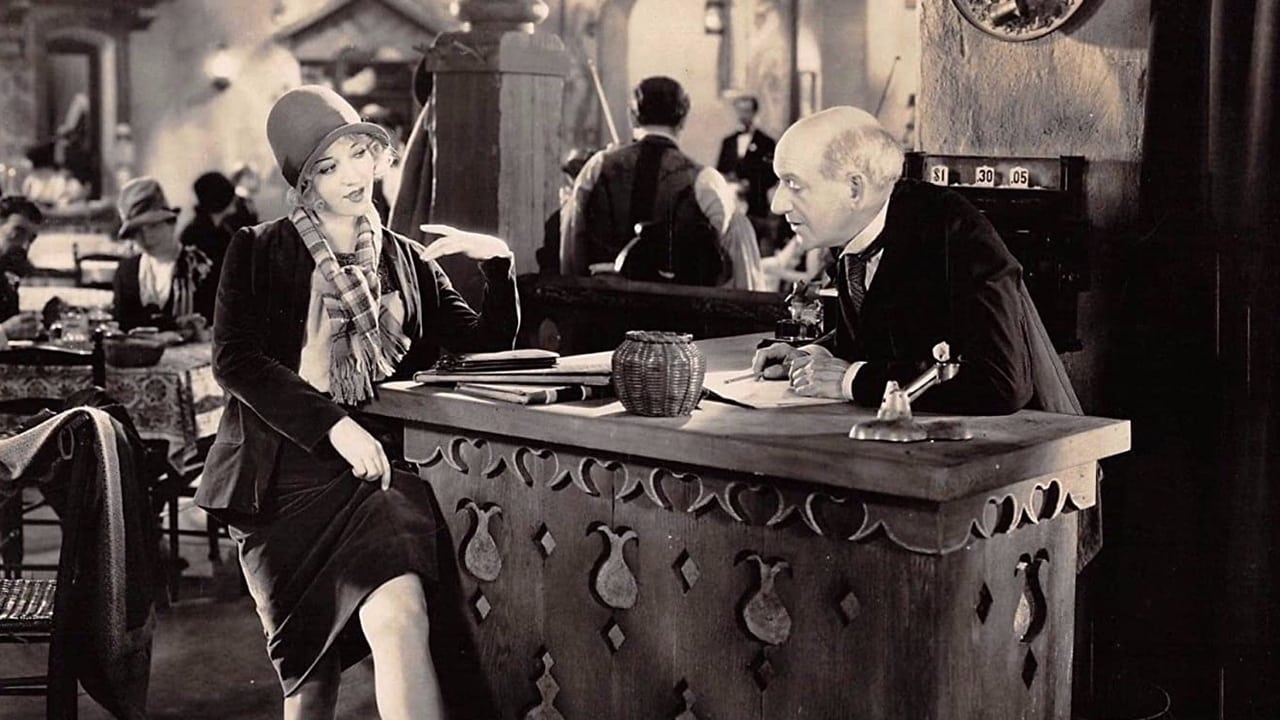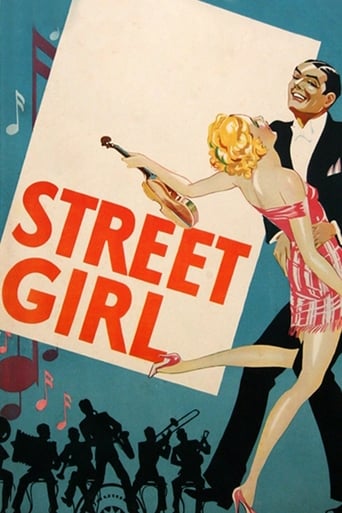

Mostly, the movie is committed to the value of a good time.
... View MoreThrough painfully honest and emotional moments, the movie becomes irresistibly relatable
... View MoreThere is definitely an excellent idea hidden in the background of the film. Unfortunately, it's difficult to find it.
... View MoreOne of the film's great tricks is that, for a time, you think it will go down a rabbit hole of unrealistic glorification.
... View MoreHad this film been made a few years later, I might have scored it a 6. This is because for 1929 (an early talkie) it's a pretty good little film. And, like so many films from 1929, it's a musical.The film begins with an excellent jazz combo performing. The four guys in it all have last names like the seasons. Mike Fall is sort of the leader. After the show, he comes upon a masher bothering a young lady, Frederika (Betty Compson). Then he learns she's hungry and homeless and he takes her home to stay with his bandmates. This good deed is soon rewarded, as Frederika turns out to have musical talents of her own and she becomes part of the band. And, more importantly, she turns out to know the prince of the fictional country from which she came. His coming to their concert at a local restaurant suddenly makes them famous and, for once, very well paid. However, as Mike and Frederika fall in love, you see that Mike is a very stupid and insecure jerk-- and he's jealous of the attention the prince has paid to her. In fact, this jealousy threatens to ruin the band.The film works best because the music is very enjoyable--even almost a century later. Additionally, Ms. Compson's odd accent works better than her accents in other films (such as a French one) because the country is fictional and you don't know what to compare it to! Overall, a fun little film. And, if you watch, look for a young Jack Oakie and Ned Sparks in the band.
... View MoreOkay, it was 1929 and movies had just started talking. But this tale of a jazz combo who take in a violin-playing waif moves lethargically through a few settings. There's the night spot where the band performs and the apartment where they live --and where the dialogue drones on and on. As the street girl, Betty Compson desperately tries to fake a Ruritanian accent while a young, thin Jack Oakie gets off a a few snappy one-liners. When the cast stops jabbering and the music takes over, it's entertaining -- particularly an up-tempo number, "Lovable and Sweet," co-written by Oscar Levant. But when they talk, you can't stop yawning.
... View MoreI watched this on TCM and found it interesting, though in many ways just a showcase for the music. Very '20s, very period-piece stuff, with the usual strange choreography. I thought the title Street Girl was a bit of a tease however, as the "girl" turned out to be a homeless violinist who gets involved with a down-at-heels dance band. What stood out for me however was the noisiness of the sound track, the worst I have ever heard. I realize this is an early talkie and they were probably still struggling with ways to muffle the sound of the camera. But every shot seemed to have its own peculiar frequency, from whirring to humming to grinding to something like a garburator. I wonder now if early-talkie audiences noticed or cared about this, but it seems to me that many must have longed for the sophisticated accompaniment that had evolved by late in the silent era. What also amazes me is the leap in sophistication that took place in only a couple of years: by 1931, people had forgotten all about silent movies and screenwriters/actors had hit their stride. This is great to watch if you're a sound technician/film historian or both.
... View MoreThis musical comedy near the dawn of the sound era follows the routine formula (boy gets girl, boy loses girl, boy gets girl) but sports a nice jazz combo, with John Harron playing piano and trumpet (sometimes at the same time), Ned Sparks playing violin, Jack Oakie with a mean clarinet and Guy Buccola on the accordion. I never tired of the one bouncy show-stopper by Oscar Levant and Sidney Claire called "Lovable and Sweet," despite it being played and sung several times. In fact, I was humming it for a day or so. What surprised me was seeing Jack Oakie looking so thin I almost didn't recognize him, and John Harron as the romantic lead, since I was used to seeing him only in bit parts in 30's movies. I'm not sure if the music the boys played was dubbed or not, but the female lead, silent star Betty Compson, was an accomplished violinist and surely did her own playing. I rather enjoyed watching this film despite its triteness.
... View More